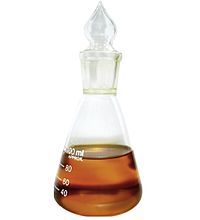
Photo from wikipedia
Abstract The rapid increase in the emission of greenhouse gases over the years signifies the urgent need to explore fuels that emit less CO2, such as biofuels. CO2 emission can… Click to show full abstract
Abstract The rapid increase in the emission of greenhouse gases over the years signifies the urgent need to explore fuels that emit less CO2, such as biofuels. CO2 emission can be reduced further by productively utilizing the CO2 generated during industrial processes. In this study, we have proposed a strategy to produce advanced biofuel from macroalgal biorefinery and to utilize all waste streams from processing into value-added products. To achieve this aim, we developed a novel superstructure for biorefinery process synthesis based on Saccharina japonica (macroalgae) to determine an optimal design of the biorefinery. Process integration was performed to utilize direct greenhouse gas emissions from the biorefinery and to reduce pollutant emissions and freshwater consumption. A techno-economic and environmental mixed-integer non-linear model was formulated based on this superstructure. To achieve the economic and environmental goals, two objective functions were studied: maximization of the net present value and minimization of CO2 emissions. A comprehensive sensitivity and Monte Carlo simulation model was formulated to evaluate the effects of variation in key model parameters on the overall economics and to perform the risk assessment, respectively. The minimum ethanol selling price range for the integrated design was found to be USD 0.36–0.56/L. The optimal design achieved a 90% reduction in CO2 emissions, from 4.86 kg/s to 0.42 kg/s, as well as a 38.6% reduction in freshwater consumption. The risk of the optimal design was found to be 20–44% on the basis of the minimum selling price of ethanol. Therefore, this design can be implemented as an economically and environmentally feasible approach to biofuel production.
Journal Title: Energy
Year Published: 2021
Link to full text (if available)
Share on Social Media: Sign Up to like & get
recommendations!